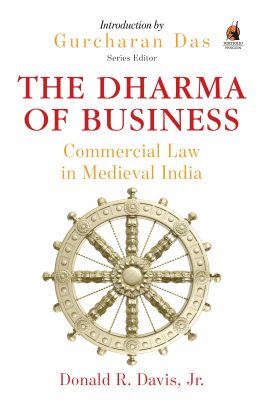
The Dharma of Business
Author: Donald R. Davis, Jr., Gurcharan Das
Business law in medieval and early modern India developed within the voluminous and multifaceted texts called the Dharmashastras. These texts laid down rules for merchants, traders, guilds, farmers, and individuals in terms of the complex religious, legal, and moral ideal of dharma. This exciting book provides a new perspective on commercial law in this period. In addition to a description of the substantive rules for business, the book reinterprets the role of business and commerce within the law generally and demonstrates that modern assumptions about good business practice could benefit from the insights of this ancient tradition. It thus makes a compelling case for the relevance of the dharma of business to our own time.
Published by: Penguin Books India; Published: 06 April 2018
ISBN13:9780143439899;
Buy this book from Penguin
|
| |
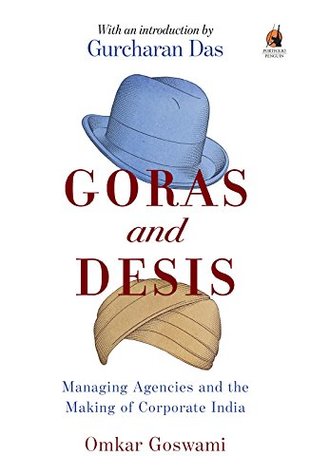
Goras and Desis
Author: Omkar Goswami, Gurcharan Das
"'An insightful view on the origin and evolution of Indian corporates' – N.R. Narayana Murthy The story of corporate India is linked to managing agencies, an organizational form dominant in the subcontinent from 1875 until its abolition in 1970 that allowed entrepreneurs to promote diverse companies while exercising disproportionate control over cash flows. This is the definitive economic history of Indian companies through the lens of managing agencies, whether controlled by goras or desis. 'An informed analysis of the ways of Indian business' – Sanjaya Baru 'A fascinating history of the precursors of corporate India' – K.V. Kamath 'A very timely perspective and a delightful read' – Ashok S. Ganguly "
Published by: Penguin Books India; Published: 21 Nov 2016
ISBN13: 9780143425359;
Buy this book from Penguin
|
| |
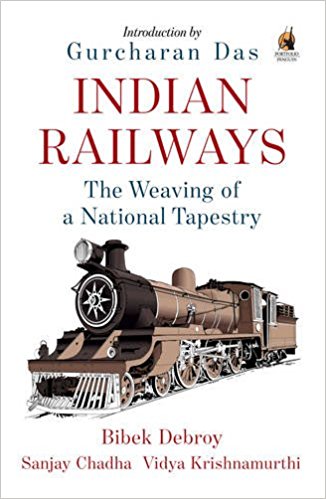
Indian Railways
Author: Bibek Debroy, Sanjay Chadha, Vidya Krishnamurthi, Gurcharan Das
The fascinating story of the network that made modern India The railways brought modernity to India. Its vast network connected the far corners of the subcontinent, making travel, communication and commerce simpler than ever before. Even more importantly, the railways played a large part in the making of the nation: by connecting historically and geographically disparate regions and people, it forever changed the way Indians lived and thought, and eventually made a national identity possible. This engagingly written, anecdotally told history captures the immense power of a business behemoth as well as the romance of train travel; tracing the growth of the railways from the 1830s (when the first plans were made) to Independence, Bibek Debroy and his co-authors recount how the railway network was built in India and how it grew to become a lifeline that still weaves the nation together. This latest volume in The Story of Indian Business series will delight anyone interested in finding out more about the Indian Railways.
Published by: Penguin Books India; Published: 02 March 2018
ISBN13: 9780143426752;
Buy this book from Penguin
|
| |
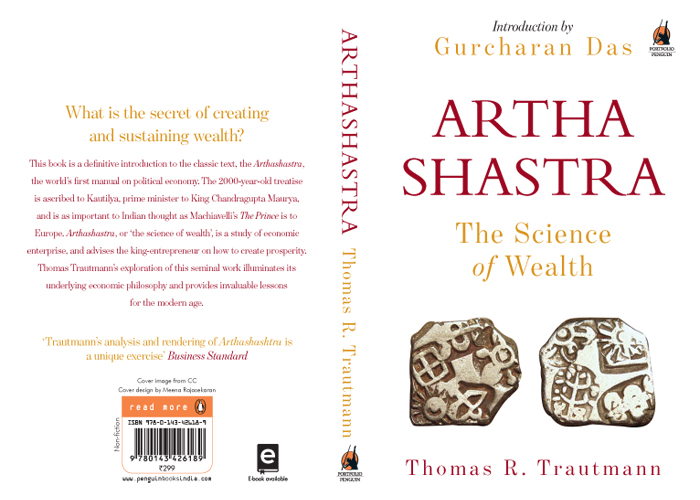
Arthashastra: The Science of Wealth
Author: Thomas R. Trautmann, Gurcharan Das
This book is a definitive introduction to the classic text, the Arthashastra, the world's first manual on political economy. The 2000-year-old treatise is ascribed to Kautilya, prime minister to King Chandragupta Maurya, and is as important to Indian thought as Machiavelli's The Prince is to Europe. Arthashastra, or 'the science of wealth', is a study of economic enterprise, and advises the king-entrepreneur on how to create prosperity.
Thomas Trautmann's exploration of this seminal work illuminates its underlying economic philosophy and provides invaluable lessons for the modern age.
Published by: Penguin Books India; Published: 31 Jan 2012
ISBN13:9780670085279;
Buy this book from Penguin
|
| |
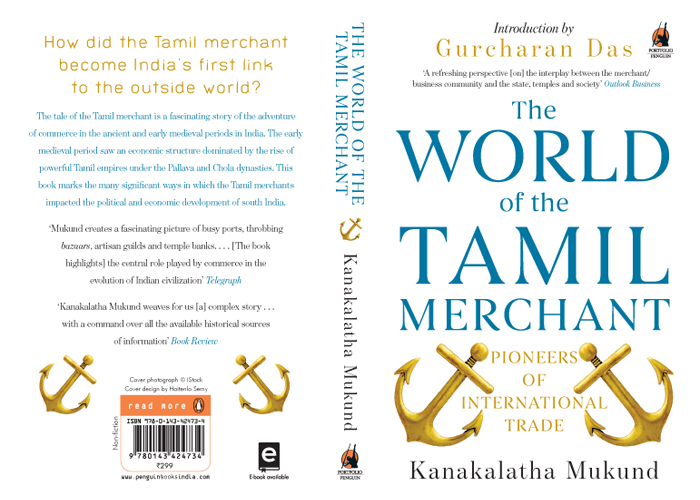
The World of the Tamil Merchant
Author: Kanaklatha Mukund, Gurcharan Das
The tale of the Tamil merchant is a fascinating story of the adventure of commerce in the ancient and early medieval periods in India. The early medieval period saw an economic structure dominated by the rise of powerful Tamil empires under the Pallava and Chola dynasties. This book marks the many significant ways in which the Tamil merchants impacted the political and economic development of south India.
Published by: Penguin Books India; Published: 31 Jan 2012
ISBN13:9780143424734;
Buy this book from Penguin
|
| |
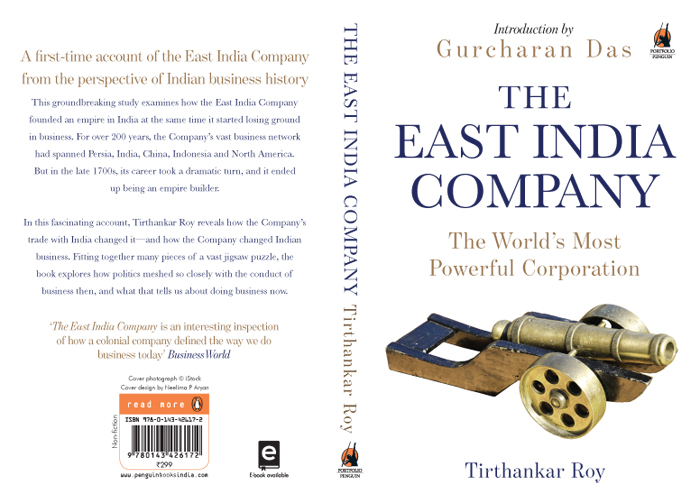
The East India Company: The World's Most Powerful Corporation
Author: Tirthankar Roy, Gurcharan Das
This groundbreaking study examines how the East India Company founded an empire in India at the same time it started losing ground in business. For over 200 years, the Company's vast business network had spanned Persia, India, China, Indonesia and North America. But in the late 1700s, its career took a dramatic turn, and it ended up being an empire builder.
In this fascinating account, Tirthankar Roy reveals how the Company's trade with India changed it—and how the Company changed Indian business. Fitting together many pieces of a vast jigsaw puzzle, the book explores how politics meshed so closely with the conduct of business then, and what that tells us about doing business now.
Published by: Penguin Books India; Published: 31 Jan 2012
ISBN13:9780670085071;
Buy this book from Penguin
|
| |
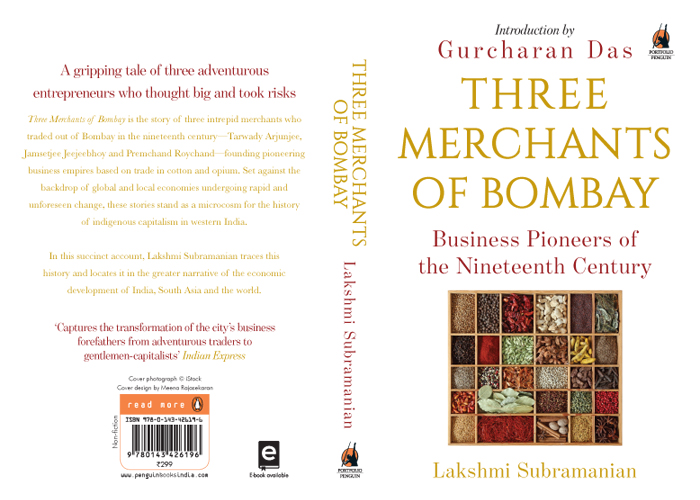
Three Merchants of Bombay
Author: Lakshmi Subramanian, Gurcharan Das
Three Merchants of Bombay is the story of three intrepid merchants who traded out of Bombay in the nineteenth century—Tarwady Arjunjee, Jamsetjee Jeejeebhoy and Premchand Roychand—founding pioneering business empires based on trade in cotton and opium. Set against the backdrop of global and local economies undergoing rapid and unforeseen change, these stories stand as a microcosm for the history of indigenous capitalism in western India.
In this succinct account, Lakshmi Subramanian traces this history and locates it in the greater narrative of the economic development of India, South Asia and the world.
Published by: Penguin Books India
Buy this book from Penguin
|
| |
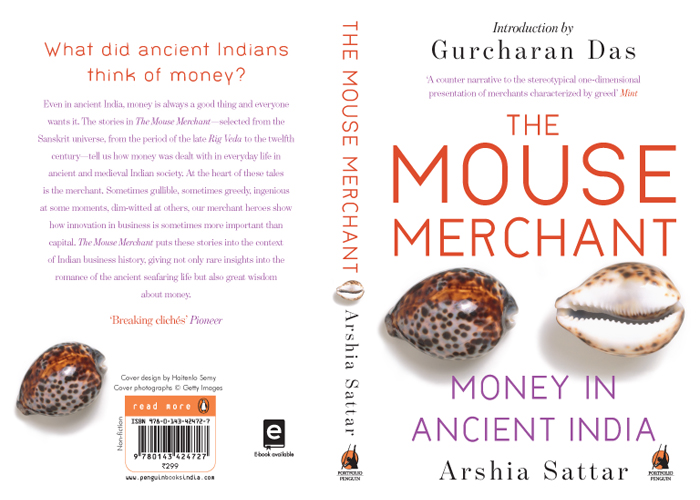
The Mouse Merchant
Author: Arshia Sattar, Gurcharan Das
Even in ancient India, money is always a good thing and everyone wants it. The stories in The Mouse Merchant—selected from the Sanskrit universe, from the period of the late Rig Veda to the twelfth century—tell us how money was dealt with in everyday life in ancient and medieval Indian society. At the heart of these tales is the merchant. Sometimes gullible, sometimes greedy, ingenious at some moments, dim-witted at others, our merchant heroes show how innovation in business is sometimes more important than capital. The Mouse Merchant puts these stories into the context of Indian business history, giving not only rare insights into the romance of the ancient seafaring life but also great wisdom about money.
Published by: Penguin Books India; Published: 20 May 2015
ISBN13: 9780143424727;
Buy this book from Penguin
|
| |
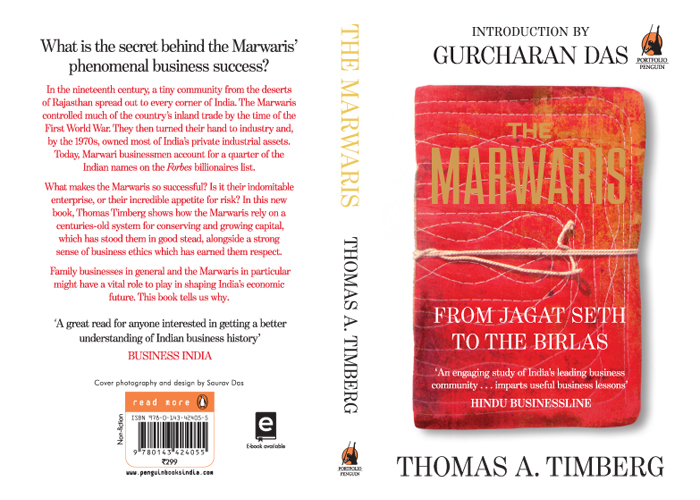
The Marwaris
Author: Thomas A Timberg, Gurcharan Das
In the nineteenth century, a tiny community from the deserts of Rajasthan spread out to every corner of India. The Marwaris controlled much of the country’s inland trade by the time of the First World War. They then turned their hand to industry and, by the 1970s, owned most of India’s private industrial assets. Today, Marwari businessmen account for a quarter of the Indian names on the Forbes billionaires list.
What makes the Marwaris so successful? Is it their indomitable enterprise, or their incredible appetite for risk? In this new book, Thomas Timberg shows how the Marwaris rely on a centuries-old system for conserving and growing capital which has stood them in good stead, alongside a strong sense of business ethics which has earned them respect. Family businesses in general and the Marwaris in particular might have a vital role to play in shaping India’s economic future.
Published by: Penguin Books India; Published: 20 May 2015
ISBN13: 9780143424055;
Buy this book from Penguin
|
| |
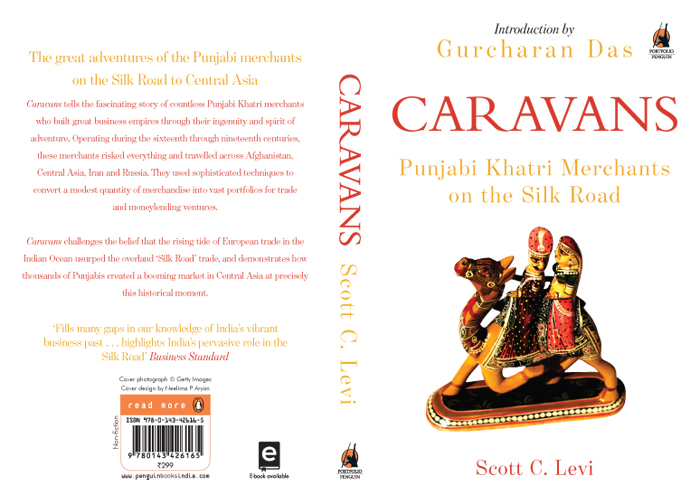
Caravans: Punjabi Khatri Merchants on the Silk Road
Author: Scott C Levi, Gurcharan Das
Caravans tells the fascinating story of countless Punjabi Khatri merchants who built great business empires through their ingenuity and spirit of adventure. Operating during the sixteenth through nineteenth centuries, these merchants risked everything and travelled across Afghanistan, Central Asia, Iran and Russia. They used sophisticated techniques to convert a modest quantity of merchandise into vast portfolios for trade and moneylending ventures.
Caravans challenges the belief that the rising tide of European trade in the Indian Ocean usurped the overland 'Silk Road' trade, and demonstrates how thousands of Punjabis created a booming market in Central Asia at precisely this historical moment.
Published by: Penguin Books India
Buy this book from Penguin
|
| |
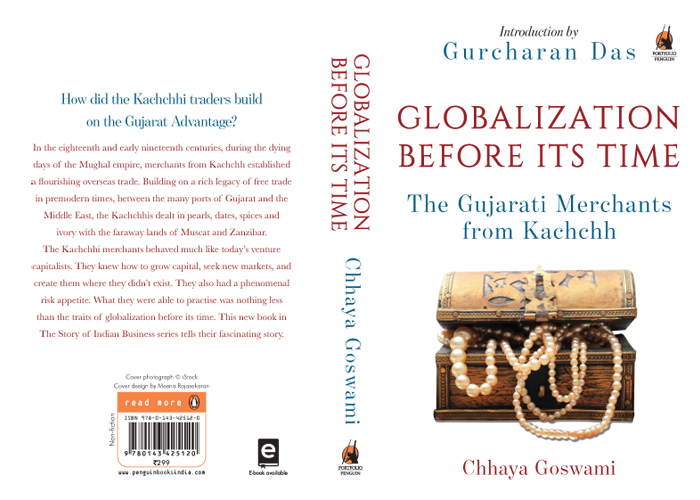
Globalization Before Its Time
Author: Chhaya Goswami, Gurcharan Das
In the eighteenth and early nineteenth centuries, during the dying days of the Mughal empire, merchants from Kachchh established a fl ourishing overseas trade. Building on a rich legacy of free trade in premodern times, between the many ports of Gujarat and the Middle East, the Kachchhis dealt in pearls, dates, spices and ivory with the faraway lands of Muscat and Zanzibar.
The Kachchhi merchants behaved much like today's venture capitalists. They knew how to grow capital, seek new markets, and create them where they didn't exist. They also had a phenomenal risk appetite. What they were able to practise was nothing less than the traits of globalization before its time. This new book in The Story of Indian Business series tells their fascinating story.
Published by: Penguin Books India
Buy this book from Penguin
|
| |












